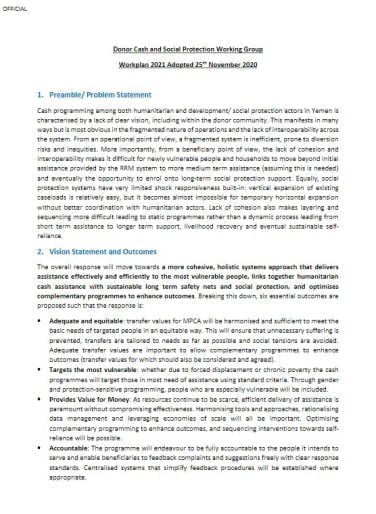Donor Cash and Social Protection Working Group
Cash programming among both humanitarian and development/ social protection actors in Yemen is characterised by a lack of clear vision, including within the donor community. This manifests in many ways but is most obvious in the fragmented nature of operations and the lack of interoperability across the system. From an operational point of view, a fragmented system is inefficient, prone to diversion risks and inequities. More importantly, from a beneficiary point of view, the lack of cohesion and interoperability makes it difficult for newly vulnerable people and households to move beyond initial assistance provided by the RRM system to more medium term assistance (assuming this is needed) and eventually the opportunity to enrol onto long-term social protection support. Equally, social protection systems have very limited shock responsiveness built-in: vertical expansion of existing caseloads is relatively easy, but it becomes almost impossible for temporary horizontal expansion without better coordination with humanitarian actors. Lack of cohesion also makes layering and sequencing more difficult leading to static programmes rather than a dynamic process leading from short term assistance to longer term support, livelihood recovery and eventual sustainable self-reliance



